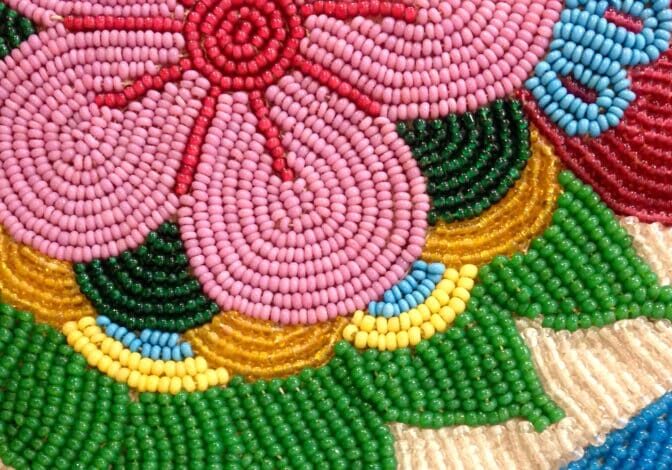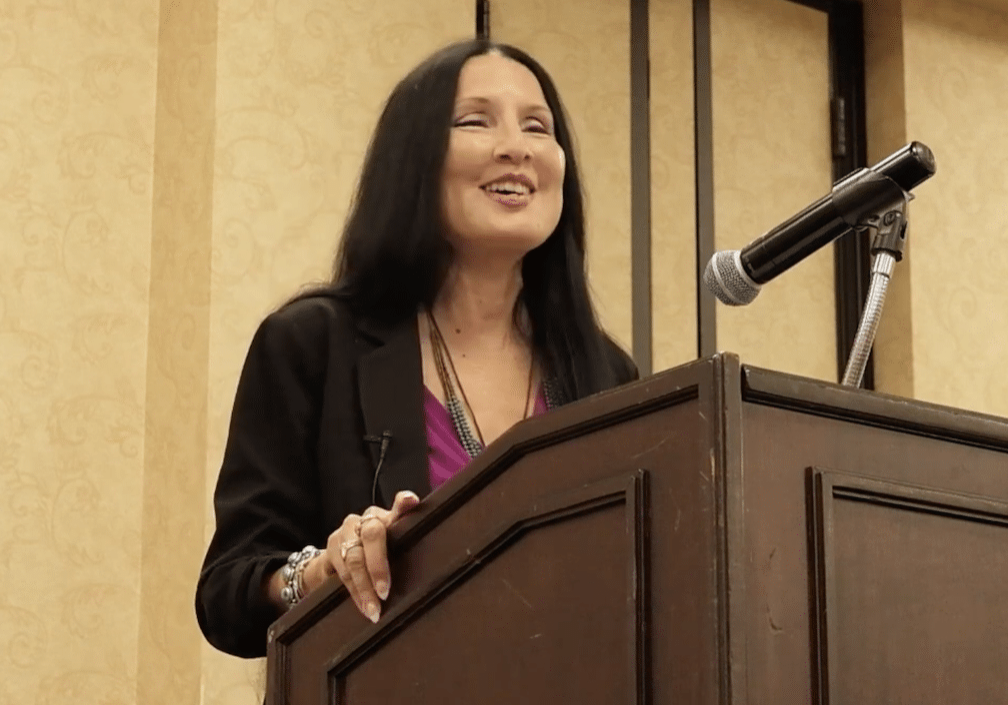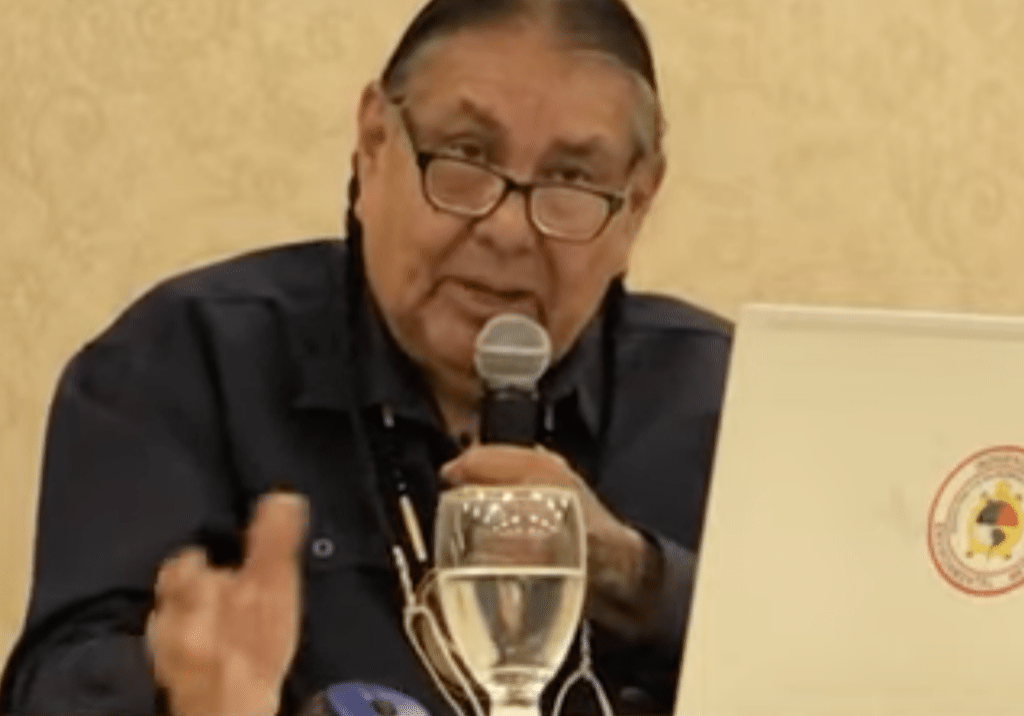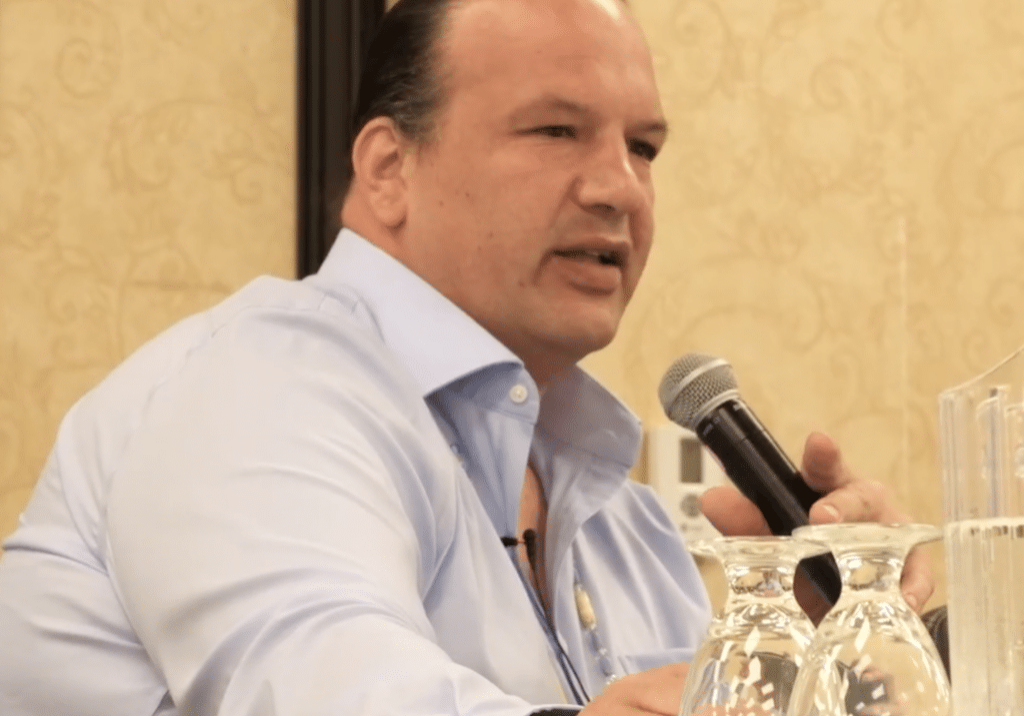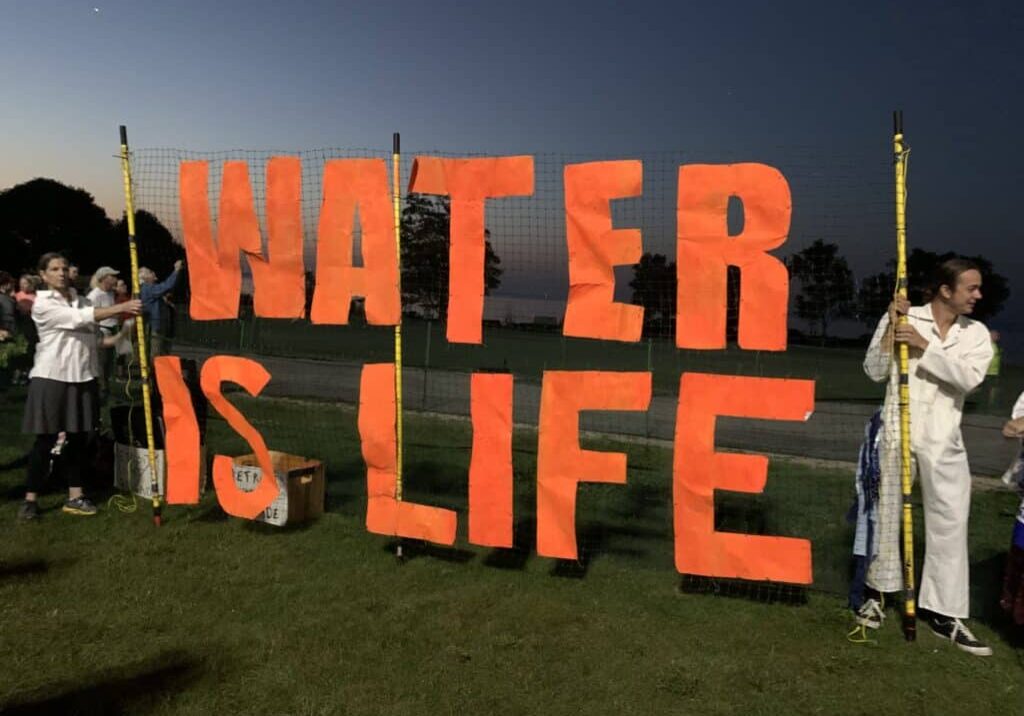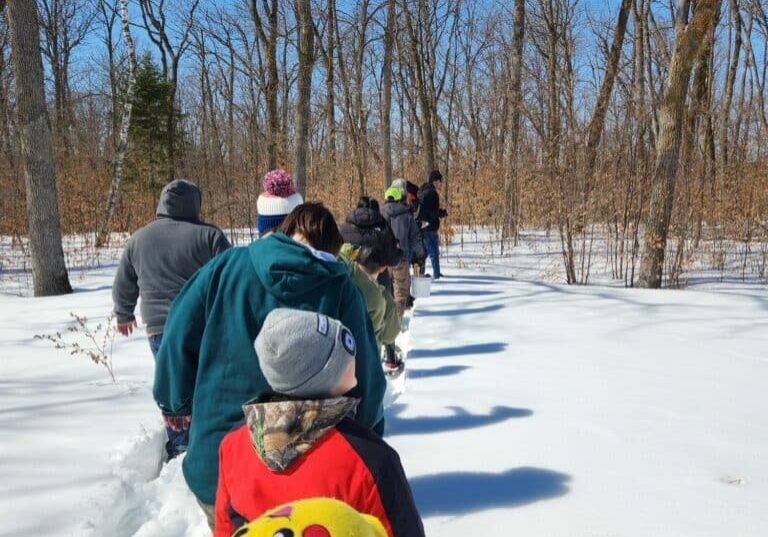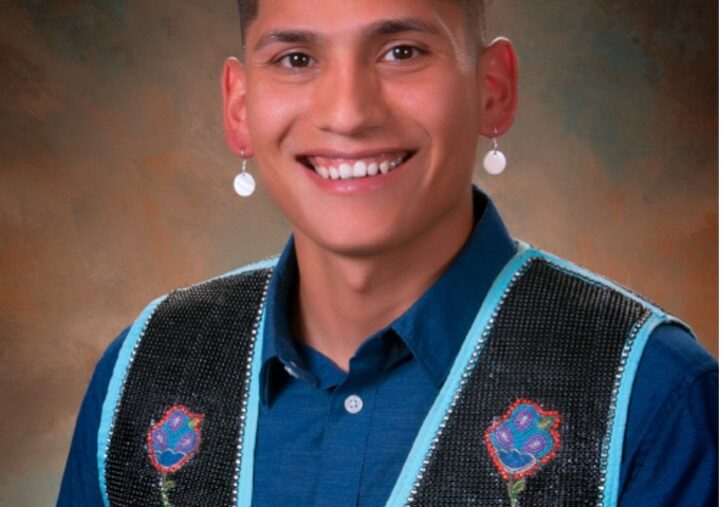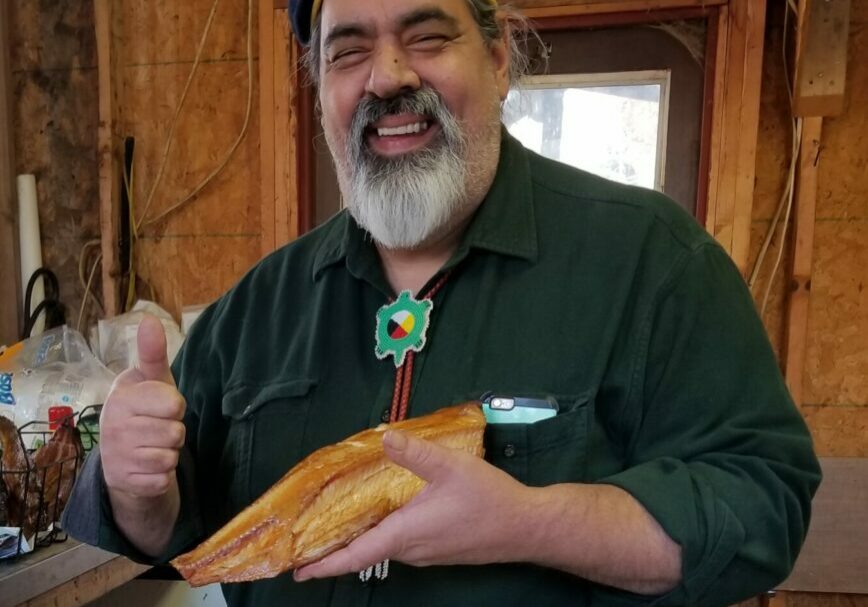Resources at Niibi
The Niibi Center aims to protect and preserve Anishinaabe culture
through the collection and sharing of wisdom and knowledge.
- All
- Anishinaabe Law Conference Videos
- Current Events
- External Press
- Niibi Posts
Niibi Center Hosts Anishinaabe Law Conference
I had the privilege of attending the First Annual Anishinaabe Law Conference, hosted by the Niibi Center on White Earth, June 25 th & 26 th – 2023. The conference provided a forum where Water Protectors, tribal lawyers and non-tribal lawyers, and nationally and internationally renowned Indigenous legal scholars could begin a formal dialogue concerning what customary, or natural law, is and looks like in practice. Among the honored speakers were Tom Goldtooth, Diné of the Dibé izhiní clan on his mother’s side, Kekek Stark – Turtle Mountain Ojibwe and member of the Bizhiw clan, and Rebecca Tsosie who is of Yaqui descent.
VIDEO: Rebecca Tsosie Keynote – First Annual Anishinaabe Law Conference
Rebecca Tsosie is a Yaqui tribal member, an attorney at law, an expert in Indigenous Law and a professor emeritus at Arizona State University. Professor Tsosie gives a passionate and informative keynote presentation on Indigenous Law at the first annual Anishinaabe Law Conference held in June of 2023 on the White Earth Indian Reservation in Minnesota.
VIDEO: Tom Goldtooth Keynote – First Annual Anishinaabe Law Conference
Tom Goldtooth is the Executive Director of the Indigenous Environmental Network, working for the rights of Indigenous Peoples, rights of Mother Earth and for environmental and economic justice. Tom has networked with Indigenous Peoples and spiritual/religious leaders globally helping humanity to re-evaluate their relationship to the sacredness of Grandmother Earth. His moving address at the first annual Anishinaabe Law Conference on White Earth in June 2023 touches on many issues of Indigenous sovereignty, both locally and globally.
VIDEO: Kekek Stark Keynote – First Annual Anishinaabe Law Conference
Kekek Stark is Turtle Mountain Ojibwe, member of the
Bizhiw (Lynx) Clan and a practitioner of Indigenous law. Kekek is an Associate Professor at the Alexander Blewett III School of Law at the University of Montana where he serves as the Co-Director of the Indian Law Program, the Margery Hunter Brown Indian Law Clinic, and the American Indian Governance and Policy Institute. This is Kekek’s keynote address from the first annual Anishinaabe Law conference on White Earth in June, 2023.
Niibi Center holds healing space for Water Protectors at Water is Life Festival
Labor Day weekend was bustling in Petoskey, MI with the annual Water is Life festival on Saturday, as well an art build on Sunday and the Mackinaw Bridge Walk event on Monday that attracted around 20,000 people. Members of the Niibi Center’s staff, as well as a few of our collaborators, joined in on the festivities for the second year by hosting an informal Water Protector healing circle at the festival and supporting the art build and Bridge Walk.
Niibi Center’s Language Immersion Program continues to thrive
Ayaanikeshkaagewaad, the Niibi Center’s innovative, nature-based Ojibwe language immersion training program, is working to reclaim the Ojibwe language through a series of in-person and online Zoom sessions. The language reclamation work is led by our Language Program Director Biidaabanikwe (Kim Anderson), a White Earth enrolled member, Azhoobines (John Daniel), a Leech Lake enrolled member, and Waase (Monique Paulson), a White Earth descendant, all second language scholars. Funding from the Blandin Foundation, the Equation Foundation, Minnesota Indian Affairs Council (MIAC), and most recently the competitive NDN Collective grant program have supported our reclamation efforts over the past two years.
VIDEO: White Earth Rep Eugene Sommers – Second Annual Anishinaabe Law Conference
As the White Earth District II Representative, Eugene Sommers was voted in by and specifically serves the communities of Waubun, Naytahwaush and Mahnomen. He shares some of his thoughts on Tribal efforts to reclaim the traditional land base. Filmed in Mahnomen, MN on July 23, 2024 on the White Earth Indian Reseravation.
VIDEO: Frank Bibeau Opening Keynote – Second Annual Anishinaabe Law Conference
Frank Bibeau, White Earth Tribal Attorney – Director, Tribal Rights of Nature Program at Center for Democratic and Environmental Rights (CDER) gives a talk on local and large-scale efforts to utilize treaty law to protect sacred resources like nibi (water) and manoomin (wild rice). Filmed in Mahnomen, MN on July 23, 2024 on the White Earth Indian Reseravation.
VIDEO: Tribal Law and Policy Institute Panel Discussion – Second Annual Anishinaabe Law Conference
TLPI Panel Discussion – 2nd Annual Anishinaabe Law Conference. Facilitated by Judge Korey Wahwassuck and featuring Judge Abby Abinanti, Judge Megan Trueur, and Stephanie Autumn.
VIDEO: Steve Newcomb Keynote – Second Annual Anishinaabe Law Conference
Steven Newcomb is a Shawnee-Lenape scholar and author. He has been studying and writing about U.S. federal Indian law and policy since the early 1980s, particularly the application of international law to Indigenous nations and peoples. Mr. Newcomb is the Director of the Indigenous Law Institute, which he co-founded with Birgil Kills Straight, a Traditional Headman and Elder of the Oglala Lakota Nation. Together they have carried on a global campaign challenging imperial Vatican documents from the fifteenth century.
VIDEO: Judge Korey Wahwassuck Keynote – Second Annual Anishinaabe Law Conference
Korey Wahwassuck (Cree) serves as a Minnesota District Court Judge for the Ninth Judicial District. Judge Wahwassuck previously served as tribal court judge for the Leech Lake Band of Ojibwe Tribal Court, was a founding member of the first Joint Tribal-State Jurisdiction Wellness Courts in the nation and authored “The New Face of Justice: Joint Tribal-State Jurisdiction” for the Washburn Law Journal and “Building a Legacy of Hope: Perspectives on Joint Tribal-State Jurisdiction” for the William Mitchell Law Review. Judge Wahwassuck is also a member of Project T.E.A.M. (“Together Everyone Achieves More,”) helping other jurisdictions create tribal-state collaborative courts of their own.
VIDEO: Dr. Darren Ranco Keynote – Second Annual Anishinaabe Law Conference
Darren Ranco Darren J. Ranco, PhD, a citizen of the Penobscot Nation, is a Professor of Anthropology, Chair of Native American Programs, and Faculty Fellow at the Mitchell Center for Sustainability Solutions at the University of Maine. He has a Master of Studies in Environmental Law from Vermont Law School and a PhD in Social Anthropology from Harvard University. Dr. Ranco had a family emergency and had to Zoom in.
